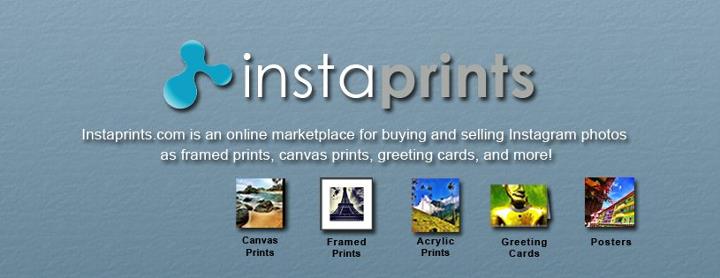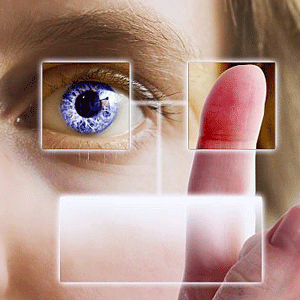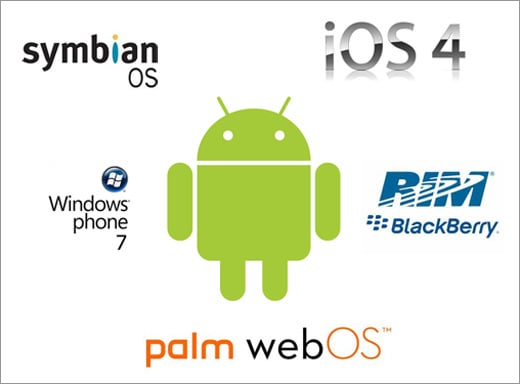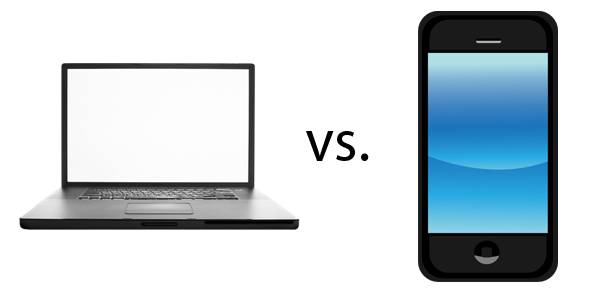
Instaprints Turns Your Photo Hobby Into The Real Thing
June 26, 2012
Cloud-Based Biometrics the Future of Data Security?
July 2, 2012While mobile operating systems continue to penetrate the market, businesses must struggle to keep up with the times. Will the standard of desktop-based OSes be left behind?
Mobile operating systems have become more prevalent, especially now with droid phones and the iPhone that are basically small, hand held computers as well as a phone. Interfaces for operating systems on computers now are not just mouse based but also touch based, thanks to the new mobile technology. Many computer manufacturers have now come out with their own versions of the touch based equipment on their computers, mostly tablets, and many businesses are looking to get a newegg coupon to buy them. So, what’s really going on, and how is this quiet revolution going to affect business?
Are mobile phones going to replace the laptop and desktop? Hardly. However, this quiet revolution will affect business, and those people in business who use computers have to be aware of the new possibilities-both negative and positive-for business. With Microsoft aiming for the mobile market with it’s preview of Windows 8, and since it’s been rumored that Google is working on a computer version of its popular Android operating system for mobile phones, it’s just a matter of time until the same operating system that is on a mobile phone will also be on a computer. It’s good for efficiency and would make operating a mobile phone that much easier for someone who’s not familiar with Droid phones. However, just how would this affect people who use both for business transactions?
First of all, this might be a big change for those who are used to going into an office every day. What if an employee could produce a document needed for a meeting on their home computer and then send it to the office? Or, attend a business meeting through Skype? Telecommuting is really in its infancy. However, with the advent of smartphones, and the unionization of mobile phones with the desktop operating system, telecommuting could really take off. That means not having to pay rent for an office. Or buy a bunch of computers. Or office furniture. Basically, it means that by utilizing mobile phones and computers at home and not having brick and mortar offices, the business structure of the last 60 years is going to change radically. Workers will be more in charge of their own time, and not spending 8 hours a day at an office. The same for supervisors and even the CEO. While data centers will still be around, office environments could become a thing of the past. It won’t be that way right away, but if mobile phones keep progressing the way they are now, telecommuting will be easier and even less expensive than it already is.
As for server structures, they have been changing and evolving for a very long time. Cloud computing was first introduced in the late 1990’s, but didn’t really start getting popular until now. Mainly, the first cloud computing software was highly unstable and unreliable, so to make it more stable and reliable, more work had to be done on it. Now, since the advent of mobile devices and the demand for data to be available 24/7, cloud computing has staged a comeback. Actually, users have been on the cloud for awhile-Google uses cloud computing for it’s popular apps like Gmail and Google Docs. And, the cloud is working just fine. So, it’s possible that we will see more dependence on the Cloud and less on stand alone servers costing thousands of dollars. That is good news for any business owner looking to cut costs. As for the IT department itself, nothing much will change, although they will probably telecommute along with the rest of the staff. Instead of having to keep an eye on hundreds or thousands of computers and expensive servers an the like, the IT person will probably be using the cloud for all business data. It might take awhile-IT people are notoriously conservative when it comes to new technology. However, since cloud computing as a concept has been around for many years, they might not have that much of a problem with it. Especially if they can watch over the environment from their house and not an office.

Distribution of computer software is another area where the unionization of operating systems for computers and mobile phones will undergo a revolution. Now, someone buys a CD copy of a popular software and loads it onto their computer, since they cannot load it onto their mobile phone due to different operating systems. When computer and mobile phone operating systems are unionized, not only will software be available for a computer, but the very same software will be available for mobile phones, thus eliminating the need for such peripherals as flash drives. Say someone downloads an update for a popular photo editing software on their computer. They can then load that same software onto their mobile phone, and edit their pictures all they want. Same thing for such popular utilities as torrent downloaders, video editing software and the like. This eliminates the need for mobile apps, since regular software will be available to use on a mobile phone. Also transferring files from a mobile phone onto a computer will be a snap. This kind of technological innovation will also be a boon for business since data will be available on both mobile phones and computers. All a user will have to do is connect the mobile phone to the computer and transfer data over. Imagine having to get a document for a meeting-the employee will be able to connect their mobile phone to their computer and have that document to the main office in seconds, since the operating system for the phone and computer will be the same. So, keep an eye on this quiet revolution in business computing. The possibilities are endless, especially for business.
Melinda Tanner is a technical writer with 11 years experience watching various trends in computing, like client/server systems and cloud computing. She also knows a bit of programming language, specifically C++, and has worked on Windows-based systems for over 16 years. She’s also quite familiar with older computer systems, like DOS.


2 Comments
I would like to see more if a sync option. I mean a hub I could put my laptop into on my desk that will sync or mirror is a better term the exact system on my desktop. Sometimes I want the power and size of my desktop but I only need one system to manage everything.
Nowadays mobile phone is getting more demand compared to the laptop, just because everything is done by the mobile phone so they are getting the more value which is having it to the normal manner to find out the why it is merging with the desktop system.